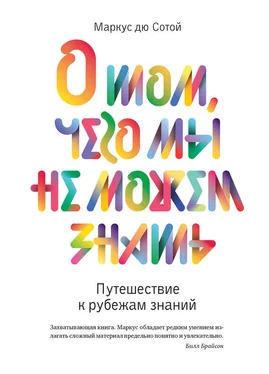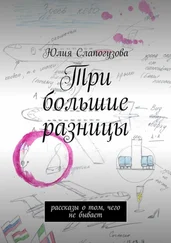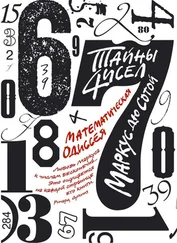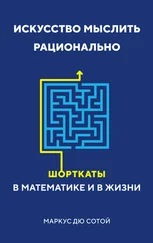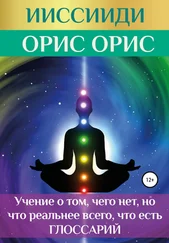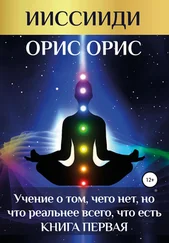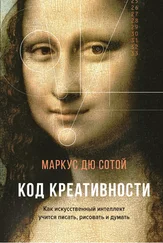Close Frank . The Infinity Puzzle: Quantum Field Theory and the Hunt for an Orderly Universe. Oxford University Press, 2013.
Conlon Joseph . Why String Theory? CRC Press, 2016.
Cox Brian and Forshaw Jeff . Why Does E = mc 2? (And Why Should We Care?). Da Capo Press, 2009.
Dawkins Richard . The Blind Watchmaker. Longman, 1986.
Dawkins Richard . The God Delusion. Bantam Press, 2006.
Dennett Daniel . Consciousness Explained. Little, Brown, 1991.
Deutsch David . The Fabric of Reality. Allen Lane, 1997.
Dixon Thomas . Science and Religion: A Very Short Introduction. Oxford University Press, 2008.
du Sautoy Marcus . The Music of the Primes. Fourth Estate, 2003.
du Sautoy Marcus . Finding Moonshine. Fourth Estate, 2008.
du Sautoy Marcus . The Number Mysteries. Fourth Estate, 2010.
Edelman Gerald and Tononi Giulio . A Universe of Consciousness: How Matter Becomes Imagination. Basic Books, 2000.
Ferreira Pedro . The State of the Universe. A Primer in Modern Cosmology. Weidenfeld & Nicolson, 2006.
Ferreira Pedro . The Perfect Theory: A Century of Geniuses and the Battle over General Relativity. Little, Brown, 2014.
Feynman Richard . The Feynman Lectures on Physics. Addison-Wesley, 1964. Доступна в Сети: http://feynmanlectures.caltech.edu/
Gamow George . Mr Tompkins in Paperback. Cambridge University Press, 1965.
Gleick James . Chaos: The Amazing Science of the Unpredictable. Heinemann, 1988.
Goldstein Rebecca . 36 Arguments for the Existence of God. Atlantic Books, 2010.
Greene Brian . The Elegant Universe: Superstrings, Hidden Dimensions, and the Quest for the Ultimate Theory. W. W. Norton, 1999.
Greene Brian . The Fabric of the Cosmos. Knopf, 2004.
Greene Brian . The Hidden Reality: Parallel Universes and the Deep Laws of the Cosmos. Knopf, 2011.
Guth Alan . The Inflationary Universe: The Quest for a New Theory of Cosmic Origins. Addison-Wesley, 1997.
Hawking Stephen . A Brief History of Time: From the Big Bang to Black Holes. Bantam, 1988.
Kaku Michio . Hyperspace: A Scientific Odyssey Through the 10 thDimension. Oxford University Press, 1994.
Kapitaniak M., Strzalko J., Grabski J., and Kapitaniak T . The three-dimensional dynamics of the die throw // Chaos 22(4), 2012.
Koch Christof . The Quest for Consciousness: A Neurobiological Approach. Roberts & Company, 2004.
Koch Christof . Consciousness: Confessions of a Romantic Reductionist. MIT Press, 2012.
Krauss Lawrence . A Universe from Nothing: Why There Is Something Rather Than Nothing. Free Press, 2012.
Kurzwell Ray . The Singularity Is Near: When Humans Transcend Biology. Viking, 2005.
Kurzwell Ray . How to Create a Mind: The Secrets of Human Thought Revealed. Viking, 2012.
Lakatos Imre . Proofs and Refutations: The Logic of Mathematical Discovery. Cambridge University Press, 1976.
Laskar Jacques and Gastineau Mickaël . Existence of collisional trajectories of Mercury, Mars and Venus with the Earth // Nature 459, 817–819, 2009.
Levin Janna . How the Universe Got Its Spots: Diary of a Finite Time in a Finite Space. Princeton University Press, 2002.
Lightman Alan . Einstein’s Dreams. First Warner Books, 1994.
Livio Mario . The Accelerating Universe: Infinite Expansion, the Cosmological Constant and the Beauty of the Cosmos. John Wiley & Sons, 2000.
Maddox John . What Remains to be Discovered: Mapping the Secrets of the Universe, the Origins of Life and the Future of the Human Race. Free Press, 1998.
May Robert M . Simple mathematical models with very complicated dynamics // Nature 261, 459–467, 1976.
McCabe Herbert . God Still Matters. Continuum Books, 2002.
Monk Ray . Ludwig Wittgenstein: The Duty of Genius. Jonathan Cape, 1990.
Mulhall Stephen . Wittgenstein’s Private Language: Grammar, Nonsense and Imagination in Philosophical Investigations, 243–315. Clarendon Press, 2006.
Mulhall Stephen . The Great Riddle: Wittgenstein and Nonsense, Theology and Philosophy. Oxford University Press, 2015.
Nagel Jennifer . Knowledge: A Very Short Introduction. Oxford University Press, 2014.
Poincare Henri . Science and Method. Thomas Nelson, 1914.
Polkinghorne John . Belief in God in an Age of Science. Yale University Press, 1998.
Polkinghorne John . Quantum Theory: A Very Short Introduction. Oxford University Press, 2002.
Polkinghorne John . Quantum Physics and Theology: An Unexpected Kinship. SPCK, 2007.
Penrose Roger . The Emperor’s New Mind: Concerning Computers, Minds, and the Laws of Physics. Oxford University Press, 1989.
Penrose Roger . The Road to Reality: A Complete Guide to the Laws of the Universe. Jonathan Cape, 2004.
Penrose Roger . Cycles of Time: An Extraordinary New View of the Universe. Bodley Head, 2010.
Peterson Ivars . Newton’s Clock: Chaos in the Solar System. Freeman, 1993.
Ramachandran V. S. A Brief Tour of Human Consciousness: From Impostor Poodles to Purple Numbers. Pi Press, 2004.
Randall Lisa . Knocking on Heaven’s Door: How Physics and Scientific Thinking Illuminate the Universe and the Modern World. Bodley Head, 2011.
Rees Martin . Just Six Numbers: The Deep Forces that Shape the Universe. Weidenfeld & Nicolson, 1999.
Rees Martin . From Here to Infinity: Scientific Horizons. Profile Books, 2011.
Saari Donald and Xia Zhihong . Off to infinity in finite time // Notices of the American Mathematical Society. Vol. 42, № 5, 538–546, 1995.
Sacks Jonathan . The Great Partnership: God, Science and the Search for Meaning. Hodder & Stoughton, 2011.
Sample Ian . Massive: The Hunt for the God Particle. Virgin Books, 2010.
Seung Sebastian . Connectome: How the Brain’s Wiring Makes Us Who We Are. Houghton Mifflin Harcourt, 2012.
Silk Joseph . The Infinite Cosmos: Questions from the Frontiers of Cosmology. Oxford University Press, 2006.
Singh Simon . Fermat’s Last Theorem. Fourth Estate, 1997.
Singh Simon . Big Bang: The Most Important Scientific Discovery of All Time and Why You Need to Know About It. Fourth Estate, 2004.
Smolin Lee . Time Reborn: From the Crisis of Physics to the Future of the Universe. Allen Lane, 2013.
Steane Andrew . The Wonderful World of Relativity: A Precise Guide for the General Reader. Oxford University Press, 2011.
Steane Andrew . Faithful to Science: The Role of Science in Religion. Oxford University Press, 2014.
Stewart Ian . Does God Play Dice? The New Mathematics of Chaos. Basil Blackwell, 1989.
Stoppard Tom . Arcadia. Faber & Faber, 1993.
Sudbery Anthony. Quantum Mechanics and the Particles of Nature: An Outline for Mathematicians. Cambridge University Press, 1986.
Taleb Nassim . The Black Swan: The Impact of the Highly Improbable. Allen Lane, 2007.
Tegmark Max . The Mathematical Universe, Found. Phys. 38: 101–150, 2008.
Tegmark Max . Our Mathematical Universe: My Quest for the Ultimate Nature of Reality. Knopf, 2014.
Tononi Giulio and Sporns Olaf . Measuring information integration // BMC Neuroscience 4, 2003.
Tononi Giulio . Consciousness as Integrated Information: A Provisional Manifesto // Biol. Bull. Vol. 215, № 3: 216–242, 2008.
Читать дальше
Конец ознакомительного отрывка
Купить книгу
